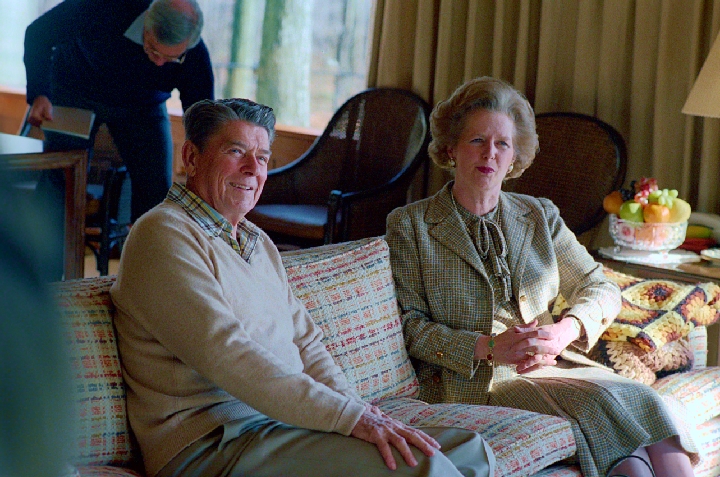Winter 2021
Transatlantic Tranquility?
How the U.S., UK, and EU can renew a special relationship.
Europe was gripped by the shocking events that unfolded in Washington, D.C. as Congress met to fulfil its solemn responsibilities under the Constitution to count the Electoral College votes that would confirm Joseph Biden as President of the United States. While some had thought there was a serious danger that the U.S. Capitol could be a target after the rallying calls of recent weeks, the events of January 6, 2021 mainly surprised and dismayed those watching across the Atlantic.
Now, as horror turns to anger that an outgoing U.S. President could have played a part in events that led to a mob terrorising people and destroying property, statements from European leaders have reflected their hope to see a return to more normal relations. In so doing, they look to President-elect Biden, whose markedly different tone in responding to these terrible events offered a glimpse into a future where Europe can feel more at ease with its most valuable partner.
Some, like Hungary and Poland, had found common cause with a populist President Trump, who was prepared to be tough on Brussels and to push sovereignty of individual states above collective action. Slovenia, a small beautiful country with its own fairy tale castle, had hoped for a visit from their most famous export, Melania Trump, husband in tow. Some of Trump’s supporters in Europe have roundly condemned the violence but exonerated the U.S. president, either by saying his supporters were too “exuberant”, or that the election of President-elect Biden was “suspicious.”
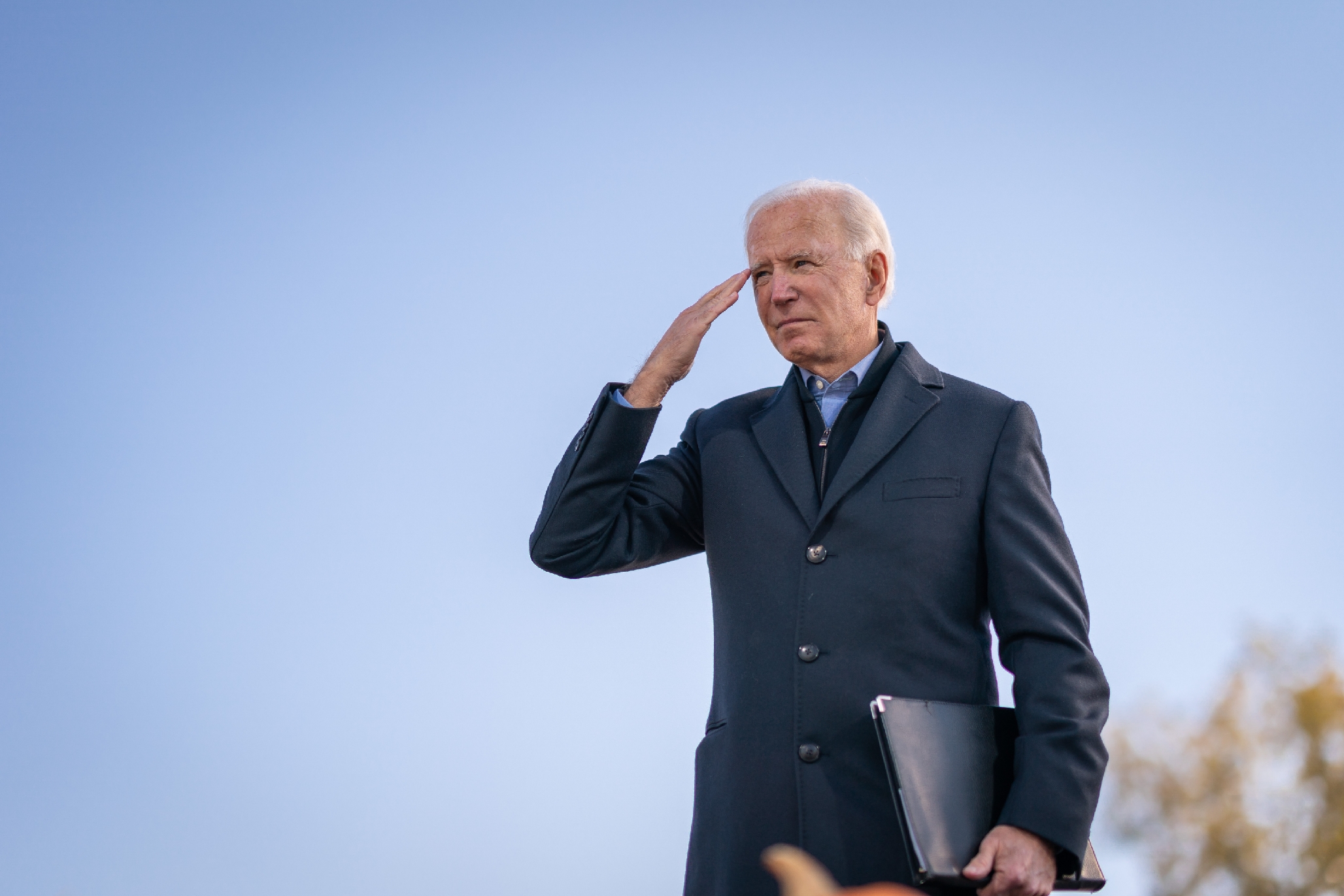
But for the rest, there was a hope that the special relationship between Europe and the United States might return, and that an American President might once again champion the values and ideals of a strong transatlantic bond.
Nowhere is that relationship regarded more importantly than in London. Ever since Winston Churchill declared in a 1946 speech that the relationship between Britain and the United States was “special,” British Prime Ministers’ relations with their U.S. counterparts have been judged on the spectrum of “specialness.” Margaret Thatcher and Ronald Reagan claimed the crown, with only Tony Blair and George W. Bush snapping at their heels for the title. Others were more mediocre relationships, like David Cameron and Barack Obama, or John Major and Bill Clinton. It mattered more to some than others: John Major’s focus was much more on Europe, Harold Wilson on keeping Britain out of Vietnam. But regardless, none have wanted the relationship to be weak, and all postwar Prime Ministers sought to keep it in good shape, not least because the U.S. and UK share the world’s largest bilateral foreign direct investment partnership.
For the current UK Prime Minister, Boris Johnson, the task is to find ways to engage the United States so that he ends up in the right part of the spectrum. Having had good relations with Trump is not a great criterion for success with a Biden administration, but to be fair, Johnson’s views have varied. Five years ago, he described candidate Trump as “betraying a quite stupefying ignorance that makes him frankly unfit to hold the office of president of the United States” when confronting Trump’s remarks on supposed “no go areas” for non-Muslims in London.
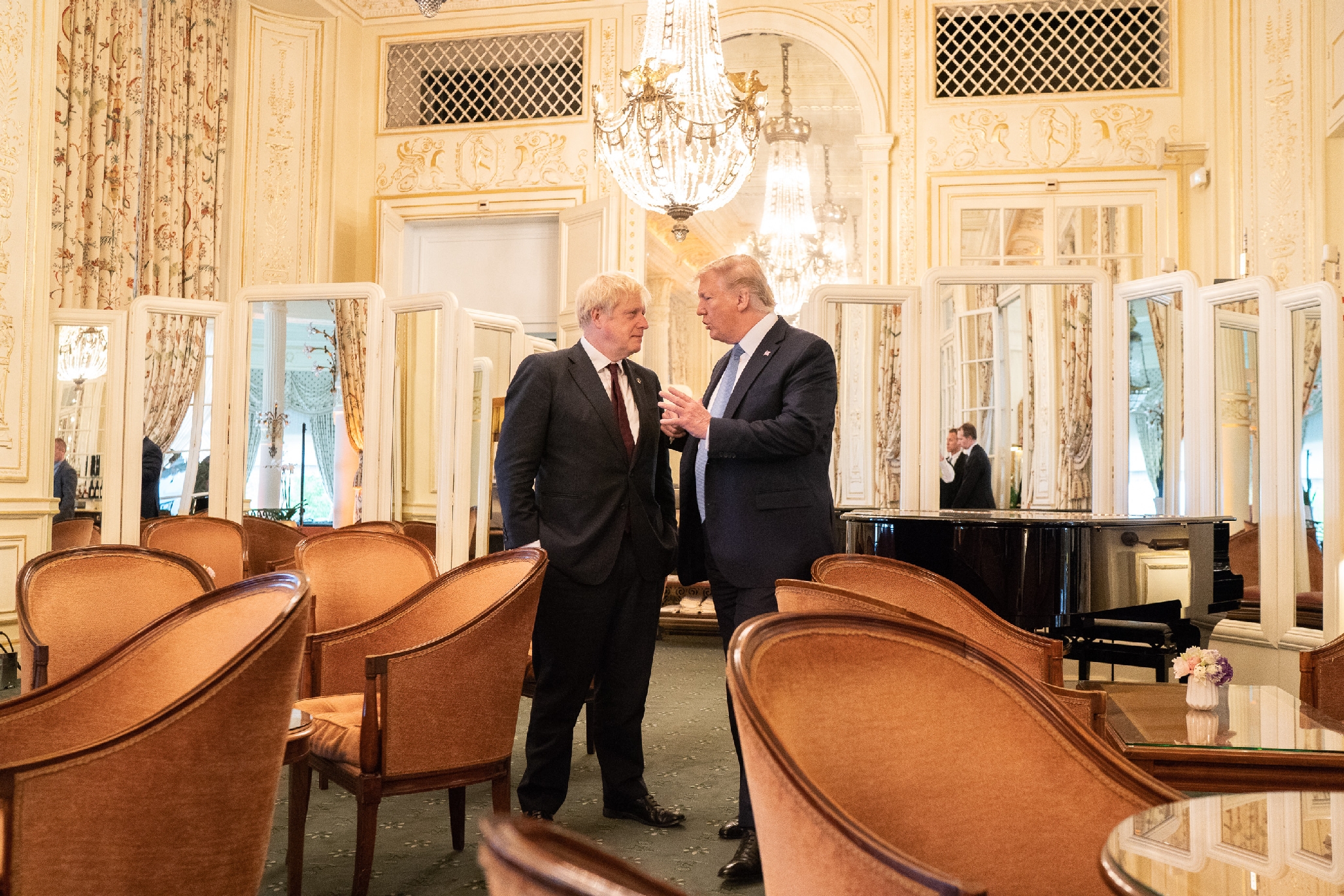
However, for the past four years, both men have professed admiration for the other. Many comparisons have put Johnson’s way of working in the same mould as Trump’s, albeit in a more subdued form, and some around Johnson would have much preferred a second Trump term. Until now at least. UK Defence Secretary Ben Wallace explained recently that he would miss Donald Trump because he was quite a good friend to Britain. There were not many capitals of Europe where that sentiment would find an echo, and hardly any British politicians who would be repeating their previously positive views.
Johnson’s own statements reflect the need to keep the special relationship as special as possible. This is high on the list of 2021 resolutions for the UK Government, especially as the country has left the EU. The usefulness of the UK to the U.S. as a bridge to Europe has now disappeared – although, in truth, it has been overrated in recent years. (Note the strength of the relationship between Obama and German Chancellor Angela Merkel, whom he regarded as his closest international partner.)
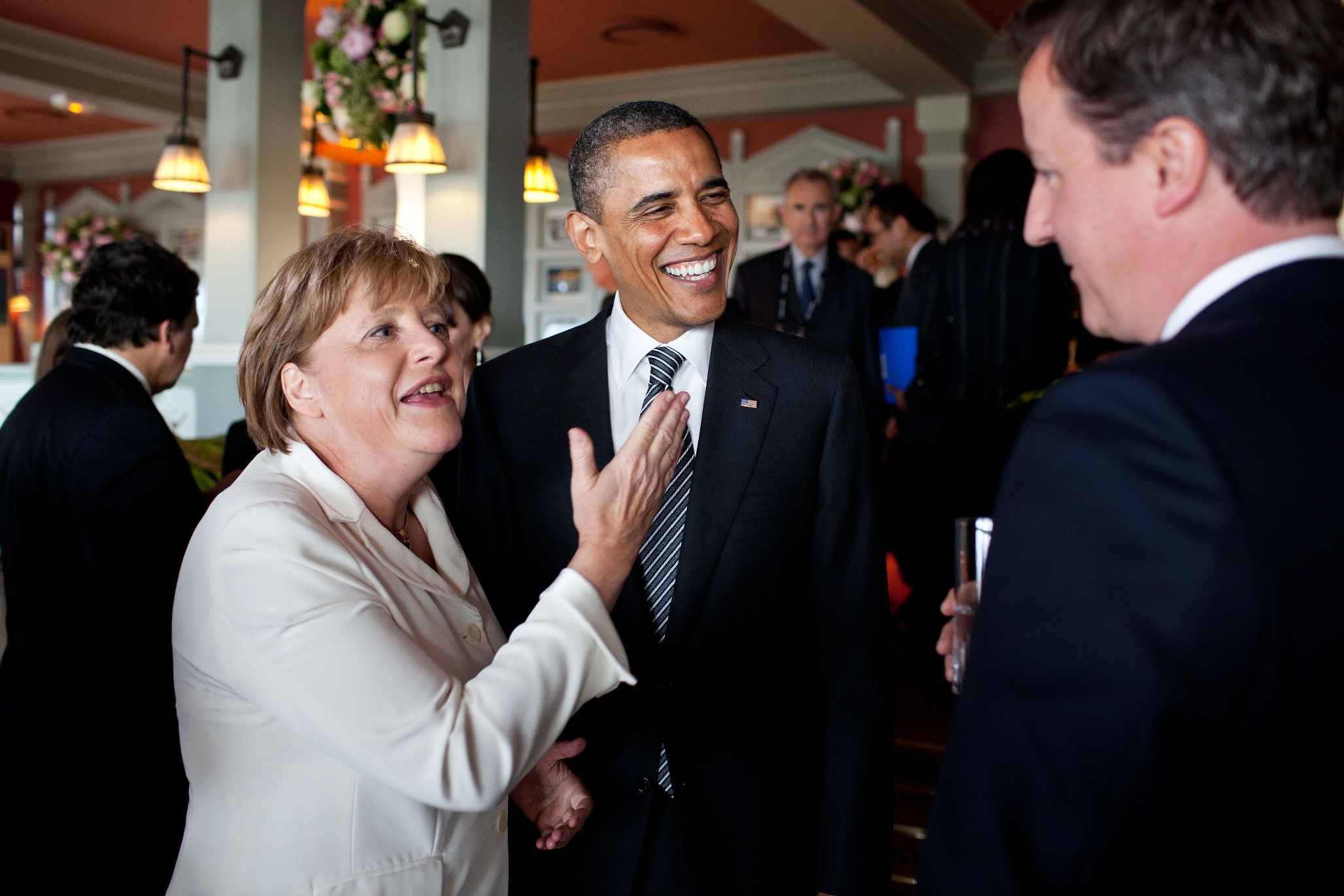
Johnson needs to develop not just the special nature of the relationship, but its indispensable nature as well. Primarily that means demonstrating clearly that a decision to leave the EU is not a decision to leave the international stage, nor to damage links across the Atlantic. For the United States, there are opportunities to bring the UK and EU closer together on areas of policy that are important for American interests.
Here are four areas that could afford the U.S. strong and unconditional support from the UK, and also fulfil the UK Government’s desire to put a “Global Britain” stamp on its actions. They are also opportunities for the EU, U.S. and UK to collaborate closely as a triumvirate – and a means to heal some of the wounds created by the rhetoric and reality of the brutal separation of the UK from the EU.
The NATO Reflection Process: New Prospects for Partnership
In December 2019, NATO’s Summit in London decided to begin a consultation on the organisation’s future. A small independent group of experts was appointed, and received a variety of submissions, covering relations with China and Russia, climate change and cybersecurity, alongside the processes of decision-making within the organisation. At the end of November 2020, without fanfare, these experts reported back with a series of recommendations. “Nothing basic about the role [of NATO] has changed,” their report was keen to point out, with a focus on “military strength and political solidarity” at its core. NATO would, for example, continue with its deterrence and dialogue approach to Russia but would devote more energy to China and the importance of climate change as a major security risk. On process, it wanted more meetings of foreign ministers and better transatlantic consultations on major strategic and political issues.
NATO had been, in its own terms, the ‘most successful alliance” – and the UK Government (and Labour opposition) would endorse that view. While there has been a longstanding view that the EU required too much loss of sovereignty for UK Eurosceptics to stomach, there has been no serious suggestion that Britain should leave NATO.
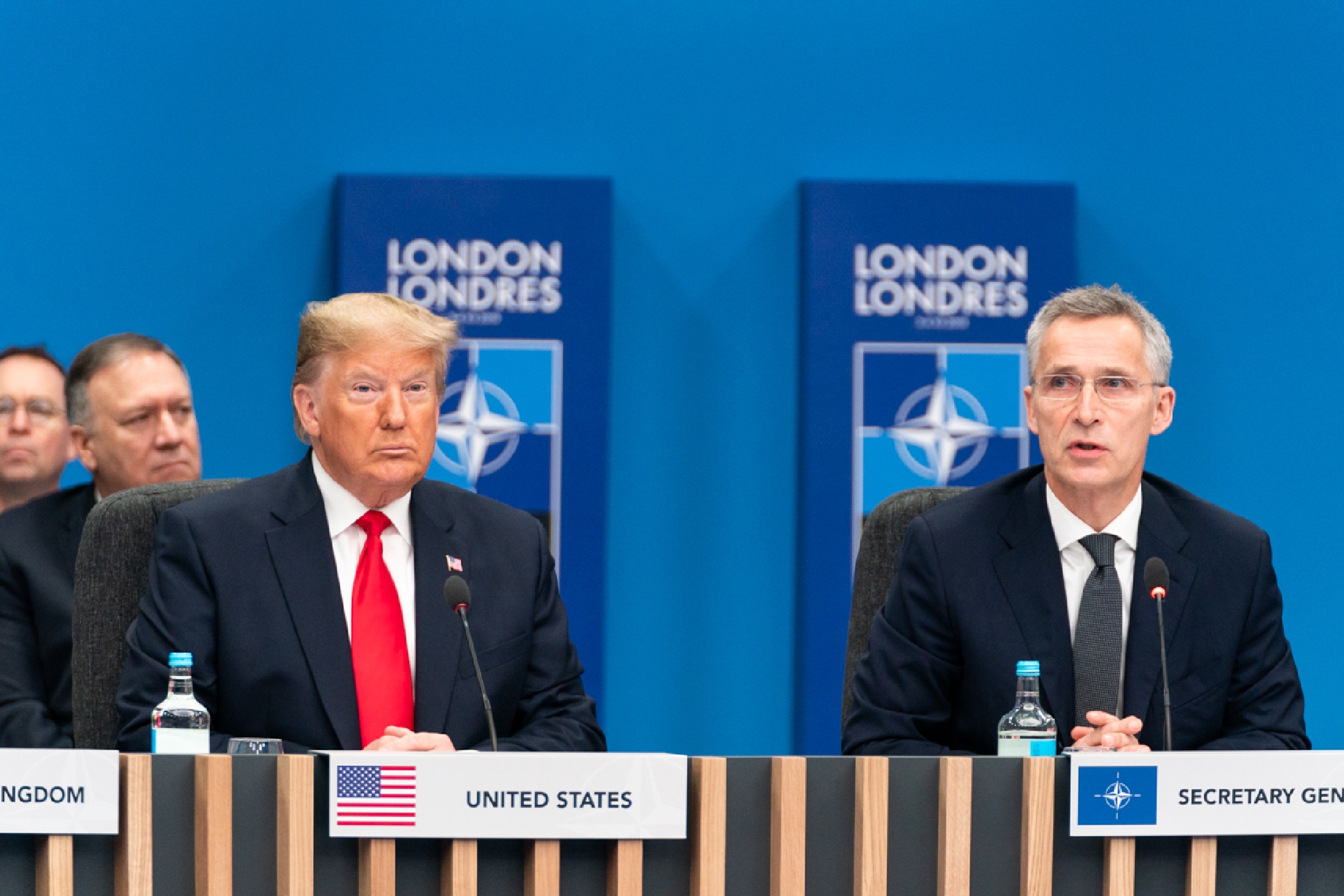
Intergovernmentalism, arguably, is more real in the EU decision-making on foreign affairs than in NATO, where U.S. dominance is the most important determinant of action. But for the UK, close alliance with the United States on defence and security matters is a key element of the relationship. Cameron’s failure in 2013 to persuade the UK parliament to support the U.S. on Syria is regarded as a massive failure of his government not easily forgotten on either side of the Atlantic. Support for U.S. action in Iraq cost Blair’s domestic reputation dearly, blurring public perception of many of the extraordinary achievements of his time in office, though he remains much admired in Washington, D.C.
The decision by the UK to increase defence expenditure is a potent signal to NATO, and to the United States in particular, that Britain will remain a steadfast partner and determined member of the alliance. This also will manifest itself in policies on Russia and China, in support of renewed U.S. efforts on climate change led by the indefatigable John Kerry (the newly appointed Special Presidential Envoy for climate change), as well as in cybersecurity and modernised defence assets – from hardware to people.
For the United States, one of the recommendations from NATO’s study is a closer working relationship with the EU, which will allow for complementary activities. For example, in my time in office as High Representative/Vice President for Foreign Affairs and Security, the EU worked on research into Improvised Explosive Devices, [IEDs], as well as helicopter and mid-air refuelling training. These efforts benefitted EU countries and NATO, and since that time work to strengthen the relationship has gathered pace. This will support a strengthened transatlantic relationship and U.S./UK/EU triangle through an alliance where there is much to gain from collaboration, and few if any political downsides.
The Iran Nuclear Deal
Over the years I chaired the negotiations with Iran, an ongoing concern of the Iranian negotiating teams was how far they could trust the United States to keep their side of the bargain. When the agreement was concluded in 2015, the election of President Trump seemed an unlikely outcome. But 15 of the 16 candidates for the Republican nomination had already indicated that they would either rip up or review the Joint Comprehensive Plan of Action [JCPOA] agreed between the P5 plus 1 and Iran. As it turned out, Iranian fears were well founded. President Trump stuck to his election promise to pull out of the agreement, ratcheting up sanctions in the hope of forcing the Iranian regime to crumble.
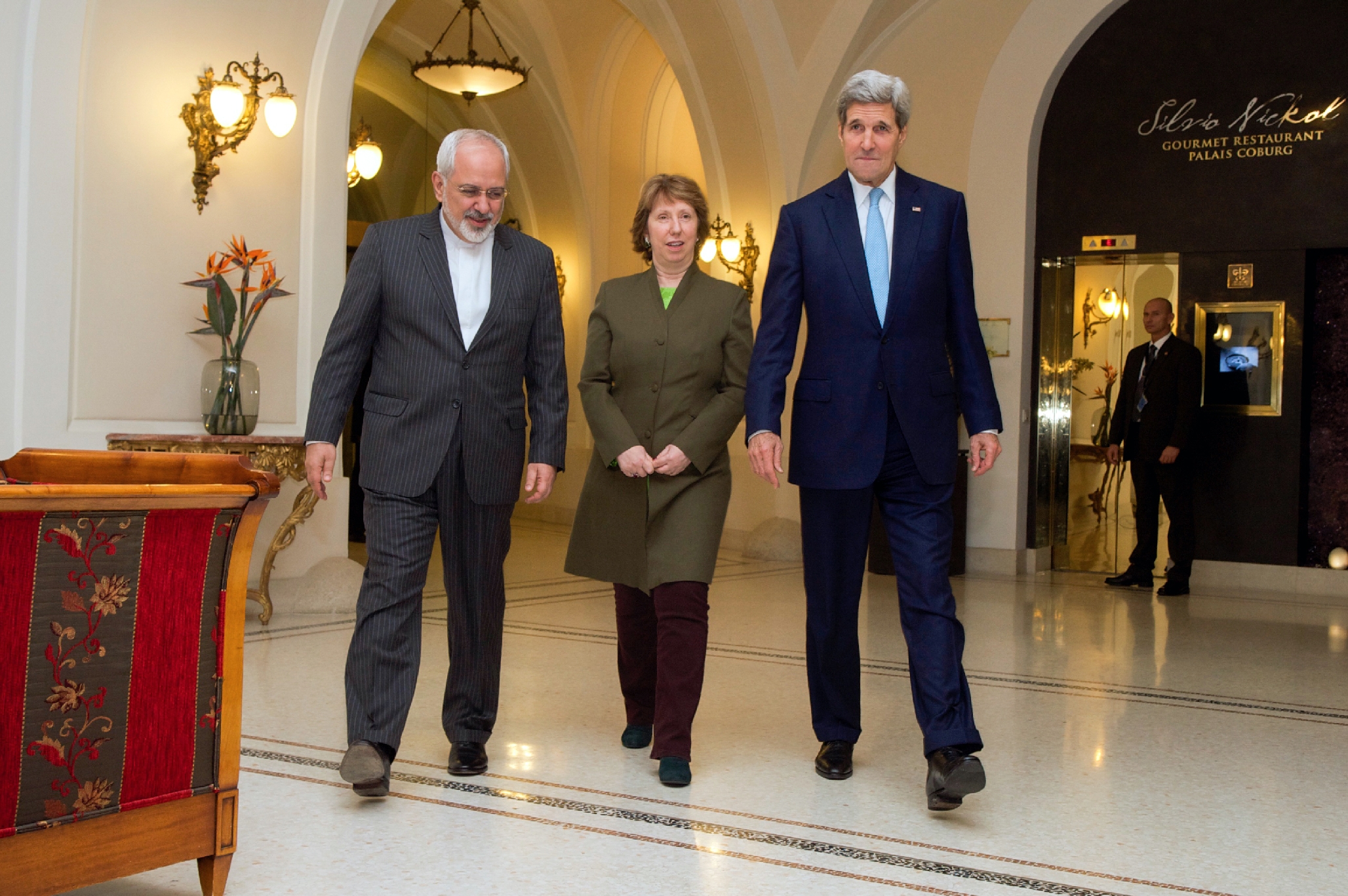
This posed a dilemma for the five other countries in the JCPOA. The deal did not belong to the United States, but without its endorsement, the rest of the P5 plus 1 found it extremely difficult, if not impossible, to fulfil their side of the bargain. For Iran, the prize of the deal had been the return of assets and, more importantly, the prospect of a strong economy – delivering President Rouhani’s election promises of strong economic growth. With U.S. sanctions preventing or deterring American and European business from any form of economic links with Iran, the prospect of a brighter economic future collapsed. For the E3 partners (Britain, France and Germany) and the EU as a whole, it took some determination not to let the deal quietly languish, and instead to forcefully declare they would stay within it.
President-elect Biden’s administration will need to consider a range of factors, including how to get longevity into a deal that he can guarantee for only four years using Presidential powers, and addressing regional concerns about Iran’s activities. He has Jake Sullivan (the incoming National Security Advisor, and a veteran of the JCPOA negotiations) and Antony Blinken (Biden’s nominee for Secretary of State) to support him, perhaps through parallel processes on the JCPOA and regional issues, as well as working with a hostile Congress to build support for their proposals.
In doing this, Biden will have a supportive EU to rely on. They have a big role to play in delivering economic opportunities for Iran if business can be convinced that they are not jeopardising their future relations with the United States nor risking sanctions. And within the EU, the new U.S. president will be able to rely on the E3, especially if he is able to convince them that the United States is determined to stay the course in finding a diplomatic solution.
Climate Change
November 1, 2021 sees the opening of the 26th UN Climate Change Conference in Scotland. It is a huge opportunity for Prime Minister Johnson to show his leadership on an issue of vital importance to the USA, EU and the planet. The UK became the first major economy to legislate for net zero emissions by 2050, last year, and is pushing for practical advances in achieving that goal – something the Prime Minister will no doubt wish to highlight in his speech in Glasgow.
For John Kerry, the months before the conference are an opportunity to show the United States is back in the driving seat. He can get agreements on lower emissions in place, or ready to be endorsed. He will want to show American leadership returning, stronger than ever, and to prominently put the U.S. at the heart of action in Glasgow.
Kerry has a lot to do, but he will find huge support from Johnson, and from the EU Commission President Ursula von der Leyen. The EU has released its ambitious Green Deal with a plan for a 55 percent cut in greenhouse gas emissions by 2030, on the way to net-zero by 2050. Its plans also include proposals on transport, farming, biodiversity and building renovation. Conscious of the difference in the economies across the EU, it has provided for large transitional payments to those areas of the EU that are most dependent on fossil fuels.
This is an area of policy that there is no doubt that the UK will want to find common cause with the United States, with NATO, and with the EU. With U.S. leadership, there is an opportunity to build a strong transatlantic alliance to make the conference a success and take forward its conclusions.
Relations with China
Whatever relations were like with China when President-elect Biden was Vice President, they are different now. Biden is seen to favour tougher policies towards a China that under Xi Jinping has taken a different direction. Concerns about China’s policies are reflected in the new EU strategy on China with its focus on democracy, rule of law, human rights, alongside achieving reciprocal benefits in its relationship, both economic and political. The same concerns are reflected in the debates in London, which has moved away from the strong engagement of the Cameron premiership to a more sceptical approach. Debates on the shocking revelations of the plight of the Uighur people, who are subject to slave labour in Xinjiang, have been taken up in Parliament amid calls for tougher responses.
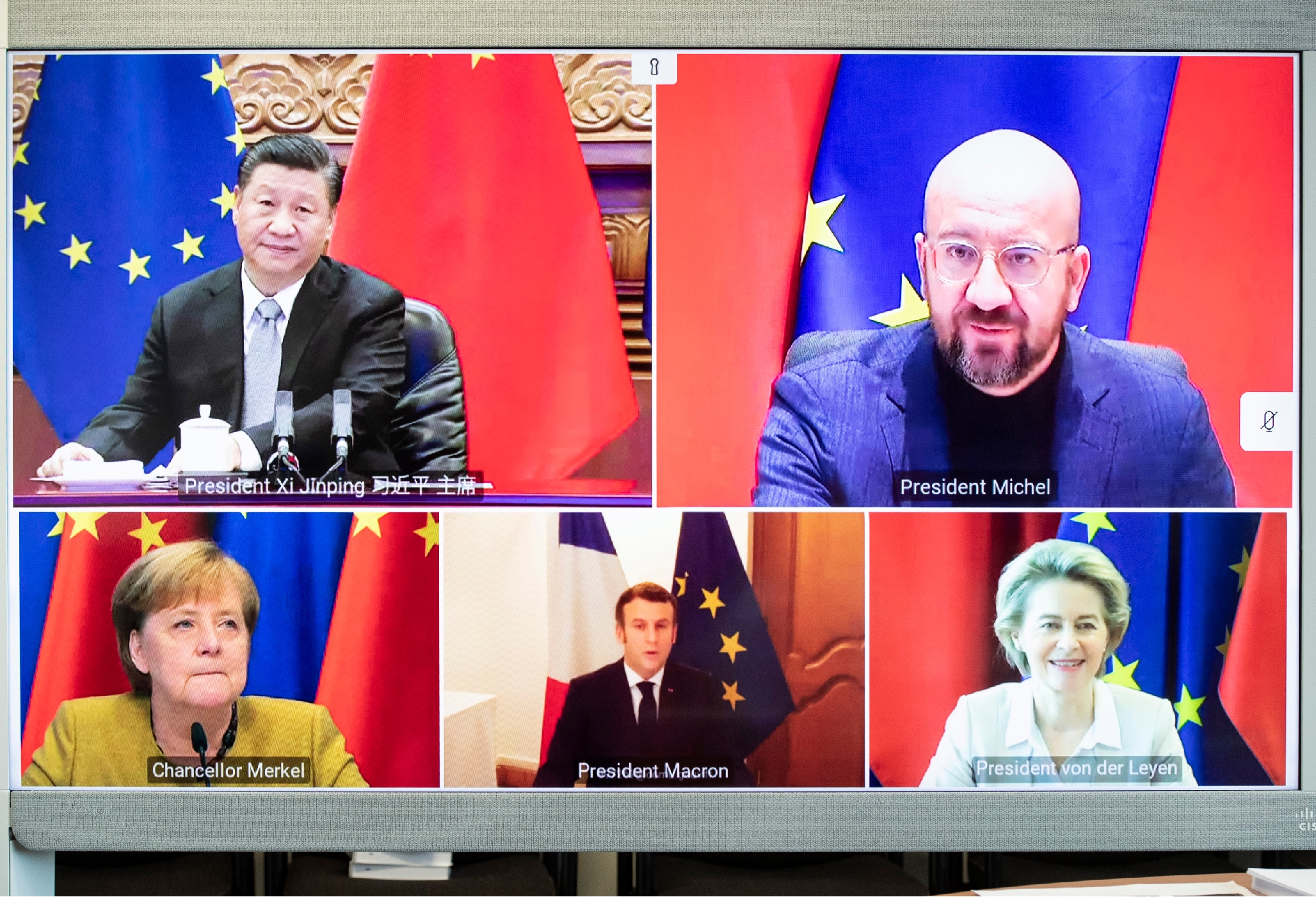
The UK is especially concerned about the promises that China has made to protect human rights in Hong Kong – promises that London negotiated with Beijing less than 30 years ago. But, of course, the UK faces greater challenges in developing a policy focused on values and concerns as a lone state, removed from its links with the world’s largest trading bloc. It must try to navigate a bilateral economic relationship without the shelter of a huge economy and solidarity with 27 other countries.
Along with the United States and the EU, Britain will want to find the balance between strong opposition to China’s actions towards both Hong Kong and the Uighur people, and collaboration on climate change and economic ties on the other. For everyone concerned, this will be difficult, but China policy points to yet another example of a triumvirate approach that could add greater strength to each.
A New Voyage Together
As 2021 arrives, there is hope and anticipation on both sides of the Atlantic that the transatlantic relationship will become stronger over the next few years. There are wounds to be healed – and things that cannot be unsaid – from the United States to parts of Europe, and from the UK to Brussels and vice versa. The shocking events that saw democracy threatened at the heart of the United States is a sobering call to all who believe in it that the only future is one in which we stand together.
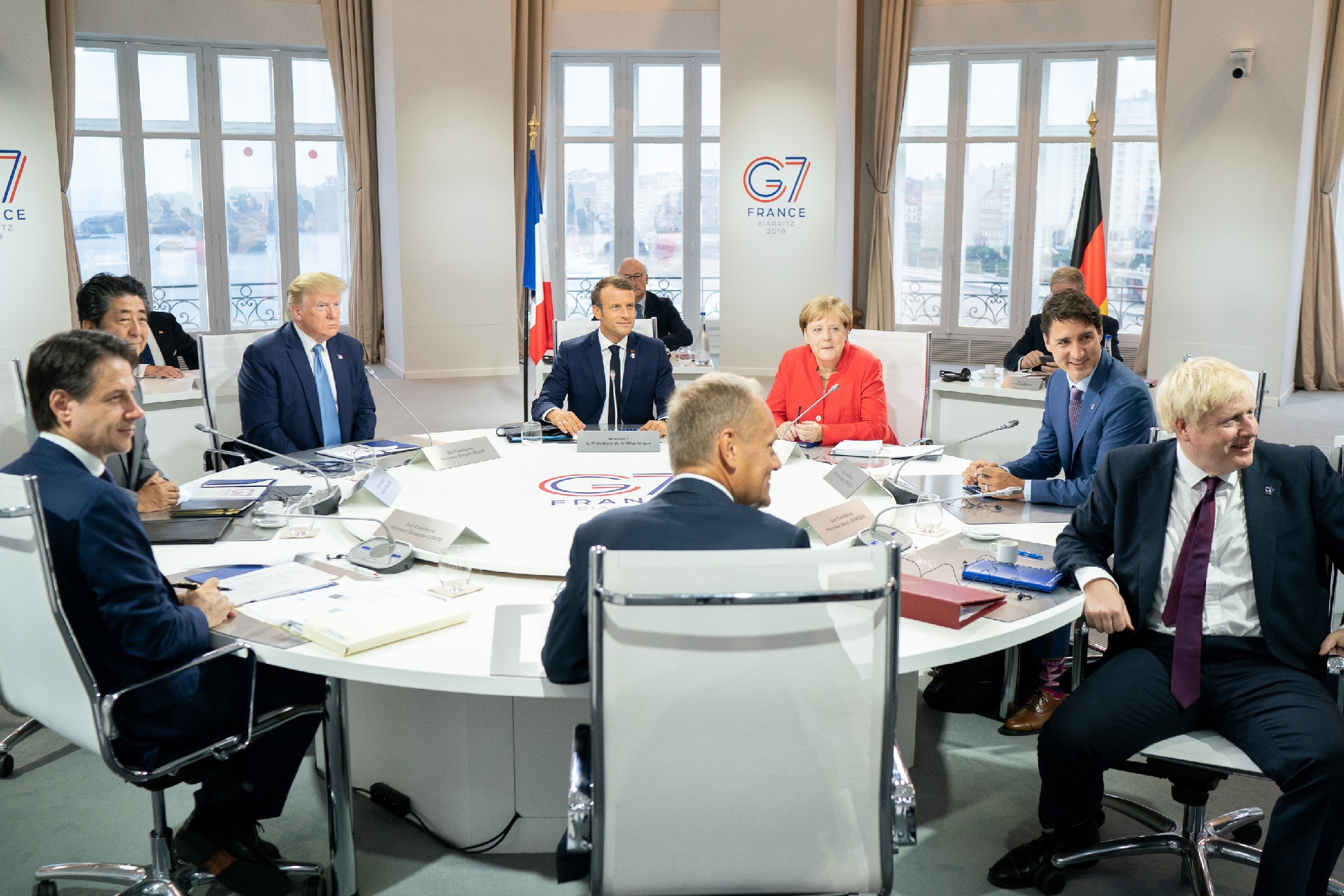
While nobody expects a return to business as usual, there is hope that in a post COVID-19 world, there will be closer cooperation from those who share the same values and ideals if we are to build a better future. There are no issues facing us that we can resolve alone.
Baroness Catherine Ashton served as the European Union's first High Representative for Foreign Affairs and Security Policy from 2009 to 2014. She is Global Europe Chair at the Wilson Center, a Senior Policy Advisor to Chatham House, and a consultant to the Geneva-based Centre for Humanitarian Dialogue.
On behalf of the UN Security Council, she chaired the negotiations that ultimately resulted in the agreement with Iran on its nuclear programme. She also worked with the Prime Ministers of Serbia and Kosovo leading to the Brussels agreement, for which they were all nominated for the Nobel Peace Prize. Previously, she was the first female EU Commissioner for Trade.
Prior to becoming an EU commissioner, she was a UK government minister in the House of Lords. She served in the Education and Justice departments, before being promoted to the Cabinet as Leader of the House of Lords.
Cover Photograph: President Ronald Reagan with Prime Minister Margaret Thatcher at Camp David on December 22, 1984. (National Archives and Records Administration)
